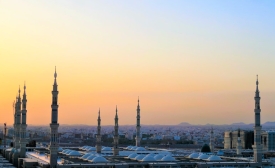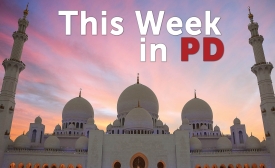Hajj

Saudi Arabia's soft power strategy during the Hajj promotes a liberal image but comes with a catch.

News this week focused on religion's role in public diplomacy.
With global oil prices flailing, Saudi Arabia is turning to another natural resource: billions of dollars gained from religious tourism as the kingdom hosts the annual hajj pilgrimage. “The money spent by pilgrims this year could be from 20 to 25 billion riyals (5.3 to 6.7 billion dollars),” said Maher Jamal, head of Makkah’s Chamber of Commerce and Industry - an estimated 70 percent increase from the previous year.
Saudi Arabia announced on Thursday that it is reopening its border with Qatar to allow Qataris to attend the hajj, despite a monthslong rift between Doha and four Arab countries led by Riyadh that prompted both sides to trade accusations of politicizing the pilgrimage.
Syrians’ Hajj pilgrimage to the sacred Islamic cities of Madinah and Makkah in Saudi Arabia has begun via Turkey. [...] “Seemingly small, people-centric policies will create big impacts for Turkey’s long-term engagement in the region.”
Saudi Arabia has announced plans to create a tourism hotspot nearly twice the size of Wales on its unspoilt Red Sea coastline, in a bid to help double the number of visitors to the Middle Eastern country. The Kingdom has also indicated that it is prepared to relax its strict laws, such as bans on drinking alcohol, to entice more western holidaymakers.
Telling the story and history of Makkah, and the rituals of Hajj, as one of the five fundamental pillars and practices in Islam, the exhibition will bring to life the profound significance of the sacred practices, while also underlining the evident attributes of tolerance, equality and the vast diversity to be found in Islam. The exhibition will be held on the grounds of Sheikh Zayed Grand Mosque, one of the most prominent and leading landmarks of culture and intellectual exchange in the UAE.
Walk with Al Jazeera’s Basma Atassi in Mecca, as she takes you on a tour to see the major landmarks that millions of Muslims visit during the period of Hajj, the annual Islamic pilgrimage.







